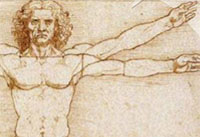Theology Theology is the study of religion and the nature of religious truths. Typically, theology is generally referred to be Christian theology. Theism Theism, in the broadest sense, is the belief that at least one deity exists. In a more specific sense, theism refers to a doctrine concerning the nature of a monotheistic God and God's relationship to the universe. Theism conceives of God as personal, present and active in the governance and organization of the world and the universe. Atheism is rejection of theism in the broadest sense of theism - the rejection of belief that there is even one deity. Rejection of theism in a narrower sense can take forms as deism, pantheism, and polytheism. In the wake of the scientific revolution of the 17th century, theism became contrasted against deism which contended that God, though transcendent and supreme, did not intervene in the natural world and could be known rationally but not via revelation. The claim that the existence of any deity is unknown is agnosticism. Put simply theism and atheism deal with belief, and agnosticism deals with the absence of knowledge. The Golden Seat takes the stand that a ‘white entity' knows that there is something greater themselves and worships or honors that greatness (not necessarily in a chruch). 'Grey’ entities are agnostic (belief that God is unknowable). In essence they say, "I deny everything. I do not believe in anything. I am afraid to believe in anything. I do know if there is something there; I hope there is, but I do know."
z |
